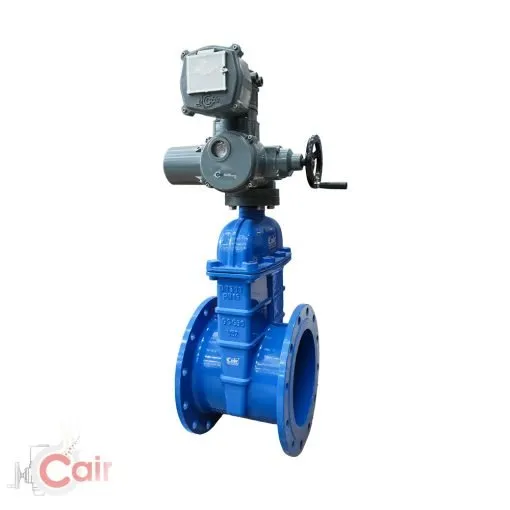Meeting the Demands of Modern Water Systems
In today’s water pipeline systems, reliable flow control isn’t just about operational convenience—it’s essential for safety, efficiency, and infrastructure longevity. From municipal water supply networks to industrial water treatment facilities, controlling the flow of water with accuracy ensures the system functions as designed without leaks, pressure loss, or operational delays. Among the most trusted components in these applications is the sluice valve, a time-tested solution for full-bore isolation and dependable shut-off.
When performance and durability matter, partnering with an experienced sluice valve manufacturer can make a significant difference in the life cycle of your pipeline systems. This article explores how sluice valves contribute to optimized fluid control, their advantages in water infrastructure, and what to consider when selecting the right valve for your system.
What is a Sluice Valve?
A sluice valve, also commonly known as a gate valve, is designed to control the flow of fluid through pipelines by lifting or lowering a gate inside the valve body. Its primary function is isolation—allowing operators to fully stop or allow fluid flow. Unlike valves used for throttling or modulating flow, sluice valves are ideal for open-or-shut operations.
Their simple yet sturdy construction makes them suitable for a range of pressures and flow conditions. Typically made of ductile iron, cast iron, or stainless steel, these valves are built to endure constant exposure to water, environmental factors, and pressure variations.
Key Benefits of Using Sluice Valves in Pipeline Systems
1. Full Bore Flow and Minimal Pressure Drop
When fully opened, sluice valves offer unobstructed fluid flow, which means there is little to no pressure drop across the valve. This makes them an excellent choice for main distribution pipelines where maintaining flow efficiency is critical.
2. Reliable Isolation for Maintenance and Emergency
In water distribution networks, being able to isolate a section of the pipeline for maintenance, upgrades, or emergency shutdowns is vital. Sluice valves provide dependable isolation, allowing workers to perform necessary tasks without disrupting the entire system.
3. Long Service Life with Minimal Maintenance
Due to their robust design and corrosion-resistant materials, sluice valves often have a long operational life. When sourced from a reputable sluice valve manufacturer, these valves require minimal maintenance, reducing long-term operational costs.
4. Versatility in Installation and Operation
Sluice valves can be installed vertically or horizontally, depending on pipeline orientation. With options for manual handwheel, gearbox, or electric actuation, they can be adapted to meet diverse operational needs across sectors.
Applications Across Industries
The versatility of sluice valves makes them suitable for a broad range of applications, including:
Municipal Water Distribution: Used to control flow in urban water networks, enabling maintenance and zone management.
Water Treatment Plants: Isolate tanks, filters, or processing sections without halting full operations.
Irrigation Systems: Manage water distribution to large agricultural fields and canals with minimal manual intervention.
Industrial Facilities: Control cooling water lines, process water systems, and more, ensuring safe and efficient operation.
Power Plants: Used in utility water circuits and other non-critical flow lines where full isolation is periodically required.
What to Look for in a Sluice Valve Manufacturer
Choosing the right sluice valve manufacturer is as critical as selecting the valve itself. Not all valves are built to the same specifications, and poor-quality valves can lead to system inefficiencies, frequent maintenance, or early failure. Here are key factors to consider:
Standards Compliance: Valves should conform to industry standards such as IS, BS, or EN for dimensions, pressure ratings, and materials.
Proven Engineering Design: Look for manufacturers that use advanced design techniques and testing protocols.
Material Options: Depending on your water quality and operating pressure, material compatibility is essential.
After-Sales Support: A manufacturer that offers technical guidance, warranty support, and availability of spares ensures long-term reliability.
Among the leading names in industrial valve manufacturing, Cair Euro stands out for its commitment to engineering excellence, robust quality control, and customer-focused approach. Their range of sluice valves is designed to meet the demanding needs of water infrastructure projects across sectors.
Conclusion: Investing in Reliable Water Flow Control
Sluice valves are more than just flow control devices—they are key components that protect the integrity of your pipeline infrastructure. With minimal pressure drop, strong isolation performance, and a long lifespan, these valves deliver reliable results across multiple industries.
To fully benefit from what sluice valves have to offer, it’s important to work with an experienced sluice valve manufacturer that understands your operational requirements and provides tailored solutions. As water infrastructure continues to grow in complexity, the need for dependable flow control equipment becomes even more essential.



 :
:









